The Beginners Guide To SEO [Search Engine Optimization]
Search engine optimization (SEO) sounds intimidating to newcomers, but don’t be fooled by the name. SEO is actually pretty simple, and it’s one of the easiest ways to drive more traffic to your website because you’re optimizing your content for search engines like Google and Bing to find and display in their search results.
If you’re just getting started with SEO, here’s an explanation of what it entails and how you can get started right away!
What is Search Engine Optimization ( SEO )?
Search engine optimization refers to activities designed to improve your website’s search rankings in a variety of search engines. There are literally thousands of things you can do to improve your rankings, but you don’t have time for everything.
You need a strong SEO strategy that focuses on high-impact activities—the ones that will make an immediate impact on your site’s visibility.
In other words, you need an SEO strategy that is both realistic and practical. That means focusing on fundamental concepts like keyword research and good content marketing practices first before moving on to more advanced tactics like link building and technical SEO.
Why is SEO Important?
There are thousands if not millions of websites that are offering the same content as you do, and all these websites are battling against each other to stand out in search engines. It’s fortunate that your website is among those and the only way you can stand out among this huge competition is by implementing the right SEO techniques.
The effort you implement in optimizing your website and contents tells Google where exactly to place your website on its list. This is the main reason why you need to work on optimizing your website for better ranking.
How Search Engines Work
Search engines work by scanning through billions of web pages using web crawlers they have developed and trained to best understand search queries. These crawlers are also known as search engine spiders.
Example: When a user searches for a particular query, these spiders then scan through all available content on the web that is related to that particular search query and arrange them in other of the most optimised one that carries more values according to that particular search engine algorithm.
The process seems to be long in human view but these spiders do it within seconds!
These same spiders also deal with website indexation so they know each part and can read all content on a webpage in seconds. The image below will give you more knowledge of how search engines work.
![The Beginners Guide To SEO [Search Engine Optimization] | Peres Tech How Search Engine Works](https://perestech.com/wp-content/uploads/2022/09/how-search-engine-works-1-1023x682.jpg)
Now that you know what SEO is and how search engines work, I think you are ready to know the types of SEO and how each of them can affect your website.
Types of SEO ( Search Engine Optimization )
From the beginning of the article you’ve been hearing the word “SEO” but you probably aren’t aware of the different types of SEO we have. Since you’re a beginner, let me be plain here! There are mainly 3 types of SEO which come together to help your website or blog rank higher.
The 3 types of SEO are mainly;
- On-Page SEO– This deals with anything on your web page, ranging from design to content.
- Off-Page SEO- This deals with any search engine optimization techniques that are done outside your website. E.g Building backlinks and marketing your site.
- Technical SEO- Any technical strategy implemented to improve your website’s ranking in search engines indexing and crawling.
![The Beginners Guide To SEO [Search Engine Optimization] | Peres Tech types of seo](https://perestech.com/wp-content/uploads/2022/04/types-of-SEO-1364x682.jpg)
Now, let’s take a deeper dive into these three (3) types of SEO!
What is On-Page SEO?
On-page SEO is anything you can do positively to impact your website ranking positively by helping search engines and visitors to better understand your content. On-Page SEO simply deals with creating great content and optimizing everything within your website.
Understanding On-Page SEO
The first step toward search engine optimization is understanding exactly what it is and how it works. On-page SEO focuses on writing well-optimized content, but there are other elements of a website that will affect your ranking in search engines.
On-page SEO is a relatively broad term that refers to all of a website’s SEO elements. This includes content, website architecture, and technical SEO. Because it encompasses so many different elements, optimizing your site for on-page SEO takes time—you don’t just sit down and write optimized content for your site and then you’re done!
But if you commit to improving your on-page SEO slowly but surely over time, it will have a huge impact on your rankings. A great place to start is keyword research. Start with basic searches related to your niche or industry and use tools like Google Trends, Keyword Planner, and Google Keyword Planner
Keyword Research & Targeting
All SEO begins with research. Start by studying your target market, looking at competitor sites and performing a keyword analysis of your industry. There are many online tools that can assist you in keyword research: from Wordtracker and Google’s Keyword Tool to Moz Pro’s free Keyword Explorer.
It’s time-consuming but necessary; good SEO requires you to be as specific as possible about what people are searching for.
Don’t be afraid of niche marketing, just try not to exclude too much of your audience; aim for a happy medium between general phrases and targeted keywords. Once you know what people are looking for, it’s easier to plan out how best to appeal.
Now you know what people are searching for, it’s time to plan how best to appeal. Your main goal with keyword research is positioning – optimizing your content and website with keywords so you rank well in search engines.
Ranking highly on search engines gives your business added credibility, as people will naturally assume that if your site appears on top of Google results then it must be a reputable business. It’s not necessarily true; if you spend enough money on SEO then there’s no guarantee that you will rank highly over more natural sites.
In fact, too much SEO is actually detrimental; search engines like Google want users to find what they need quickly and easily, so long-winded pages and overly SEO-ed content can quickly be removed from their databases altogether.
If you want to learn more about keyword research, then check our complete guide to keyword research.
Related: The 10 Best Free Keyword Research Tools
Content Marketing & Optimizing For Search Engines
If you want people to find your website, you’re going to have to play ball with search engines. And content marketing is a great way of doing that. By creating blogs and evergreen content, search engines like Google will index your site and it’ll appear in more organic searches – meaning people will find it when they search for terms related to your industry or niche.
The better optimized your site is for search engines, the higher up in searches you’ll appear… meaning more traffic and ultimately more sales! On top of that, well-optimized sites tend to rank higher on social media platforms like Twitter and Facebook too – so if you optimize everything, then there are even more places where visitors can find your website!
When creating content, always put your users and search engine in mind, because if your content is only optimized for search engines but with a bad user experience, there’s a high probability that Google will push your website down gradually.
What is Off-Page SEO?
Off-page SEO refers to any action you take outside your website in other to impact your website ranking positively. This could be Guest posting, Listing, Link building and Public relations.
Off-Page SEO Tactics
Once you’ve made sure your website is built for search engine success, you can turn your attention to off-page SEO.
A crucial part of off-page SEO is making sure that other websites are linking back to yours (Backlinks). If people want an easy way of finding your content, they should be able to find it on other websites—and lots of them, if possible.
The more links pointing back at your site from reputable sites, or domains with good PageRank scores, the better: they’re like votes that tell Google that what you have is high quality.
Note: It doesn’t really matter where those links are placed on those pages; just make sure there are plenty of them and should be a quality site as well!
Speaking of links, it’s a good idea to request that websites that do link back to you include your keywords. It might sound a little underhanded, but Google knows what you’re up to and won’t penalize you for doing so.
By including your keywords in anchor text on these links, it tells Google which specific terms you want to be associated with your site when people search for them. As long as they aren’t completely spammy looking, those extra keyword-rich links will help bump up your SEO rank—and hopefully, get new traffic in return!
What are Backlinks?
Backlinks also known as incoming or inbound links are links from one website pointing to a particular page on a different website.
![The Beginners Guide To SEO [Search Engine Optimization] | Peres Tech what are backlinks](https://perestech.com/wp-content/uploads/2022/09/what-are-backlinks.webp)
Search engines like Google consider backlinks as “votes” which means the site with higher votes (backlinks) gets to rank higher. However, this doesn’t happen in all cases there are some cases where websites with little to no backlinks also outrank websites with lots of backlinks and this boils down to content quality and link quality.
What is Link Building?
Link building is the action or process of acquiring quality inbound or incoming links from another website to your website with the motive of boosting your ranking.
The link acquired during this process is what we call backlinks!
How to Build Backlinks?
Link building may appear to be difficult at first, but with proper effort and little investment, you will realize that building links isn’t a big deal, but trust me is not easy either. The rate of difficulty or ease will totally depend on your effort.
There are 3 main link-building strategies namely; White Hat, Gray Hat, and finally black hat. A black hat and Gray hat may appear to be easy but if you are really determined to give your website a good profile on the internet and rank for long, then a white hat should be your best option.
I know you may be new to all these hats of a thing but do now worry! because I have made available The Complete Guide To Link Building: How To Get More Backlinks And Why They Matter
There are lots of ways to build backlinks, but in this section, I will focus on the 3 most effective systems of building links under the White hat link-building strategy.
1. Guest Posting
Guest posting is the process or act of writing articles for other companies or blogs in your niche in exchange for quality backlinks.
In the process of writing the article, is advisable to let the website owner know that you will be placing a link in the article to point to your website.
This link can be placed either in the body of the content or in the concluding section, in anywhere you place this link, make sure the link tag is Do-Follow and not no-follow.
Building links with this method seems to be easier, the only difficult aspect is for you to be able to look for a quality website in your niche that accepts blog posts and send them an email once they approve then you are good to go.
2. Resource Page Link Building
Resource page link building is the system of building backlinks from web pages that have a well-organised list of links pointing to other websites.
Here is a typical example below.
![The Beginners Guide To SEO [Search Engine Optimization] | Peres Tech example of a resource page](https://perestech.com/wp-content/uploads/2022/09/resource-pae-link-building.webp)
This is an effective way of building links without much investment and time, according to a pool created by Search Engine Land, this is the second most effective way of building backlinks.
![The Beginners Guide To SEO [Search Engine Optimization] | Peres Tech resource page link building](https://perestech.com/wp-content/uploads/2022/09/resource-page-link.webp)
3. Broken Link Building
This is another awesome way of building backlinks but is less popular as compared to the rest method.
The broken link method works relatively simple, all you do is scan through that particular post you’re planning on getting a backlink from or preferably scan through the whole website and take a screenshot of all the broken links on that website and craft a little email telling the website owner that you found some broken links on their site and that they should consider replacing them with your links.
This is how simple this strategy is but you will need time to better scan through the website and visit each post manually to make sure the broken links are there before requesting the website owner to update his/her content.
Remember: Not everyone will accept and not everyone with reject keep trying till you’re accepted.
Recommended Articles
- How To Target Country-Specific Website Traffic
- Ultimate Guide to Building a Successful Business Website from Scratch
- Five Ways to Improve your Site’s Ranking (SEO)
Benefits of Search Engine Optimization
If you’re running a business, SEO can be a great way to put yourself on the map. SEO gets your website in front of people who are actively looking for what you provide. For example, if you own an HVAC company and you optimize your website for keywords that people search for when they want a heating repair, it’s likely that those searching will land on your page instead of one from someone who isn’t an expert in HVAC systems.
People often trust local businesses over national chains because they feel as though they have more of a connection with them; SEO can make sure your customers see that connection by ranking highly among search results.
SEO isn’t a magic bullet, and it won’t bring you, customers, that you don’t deserve, but it can help your company stand out from others in your field. By optimizing your website for search engines, you create a digital footprint that allows people who are looking for your business—whether they know exactly what they want or are just beginning their research—to find you.
SEO can help put money back into your business by converting site visitors into paying customers; when done correctly, SEO is a cost-effective way to drive traffic through keywords and long-tail searches in particular.
Final Thought On SEO
If you’re just starting out, SEO is a great way to help people find your website. But it’s not easy, and it’s not quick. Expect to spend months—maybe even years—before you start seeing major improvements in your traffic and rankings.
Because there are so many moving parts, it also means that any issues can create big problems down the road; a change in one of your algorithms could cut off traffic from an entire country without you realizing it at first.
This post contains affiliate links.
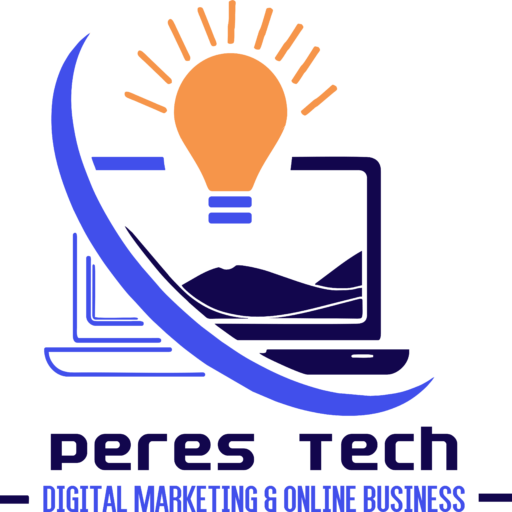
![The Beginners Guide To SEO [Search Engine Optimization] | Peres Tech Search engine optimization](https://perestech.com/wp-content/uploads/2022/04/ULTIMATE-GUIDE-TO-SEO.jpg)
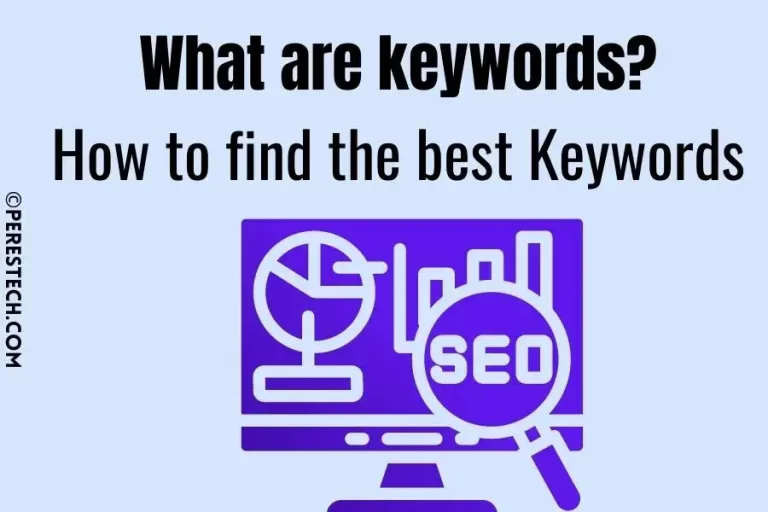
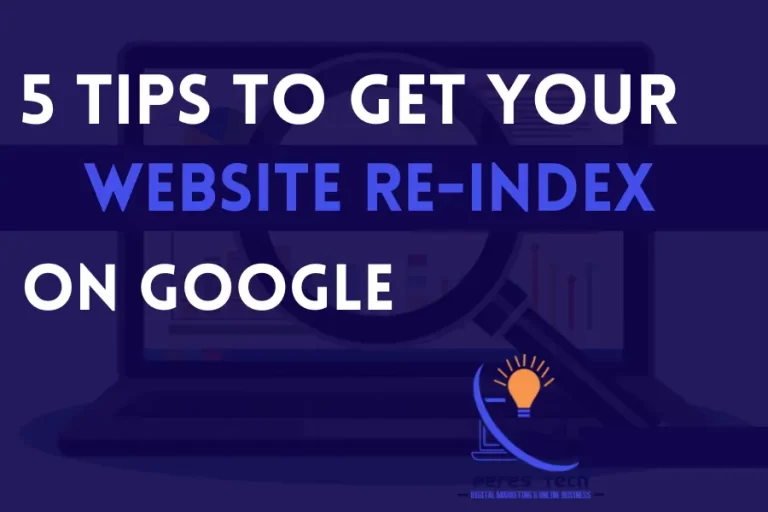
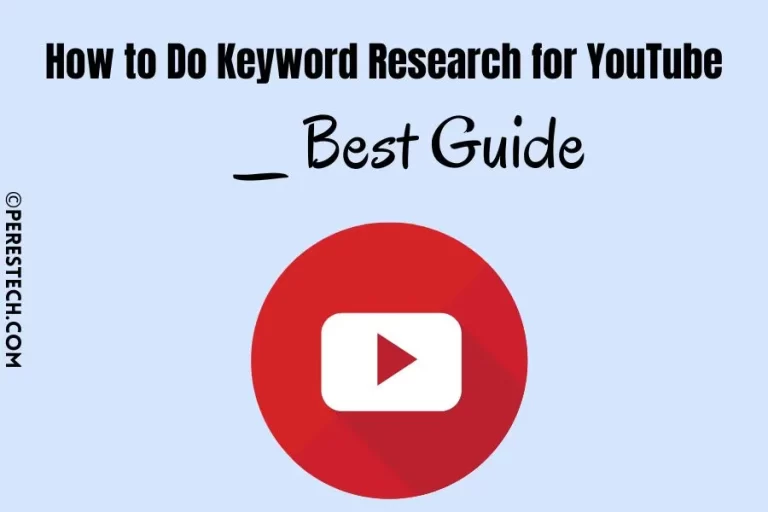
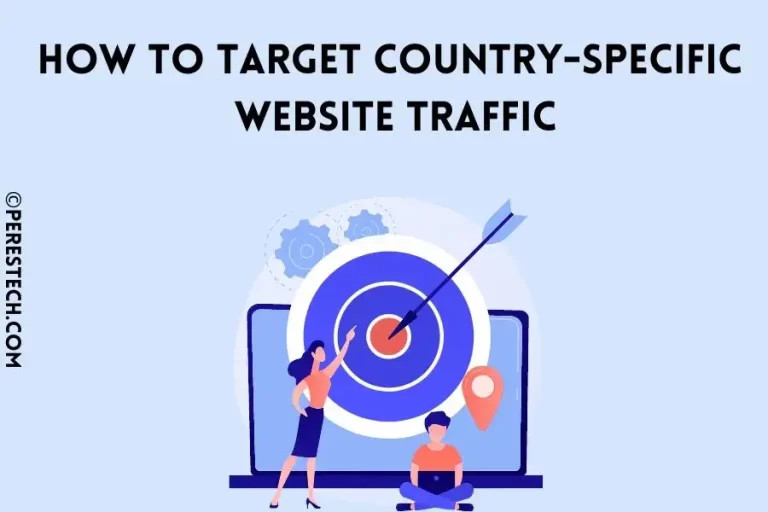
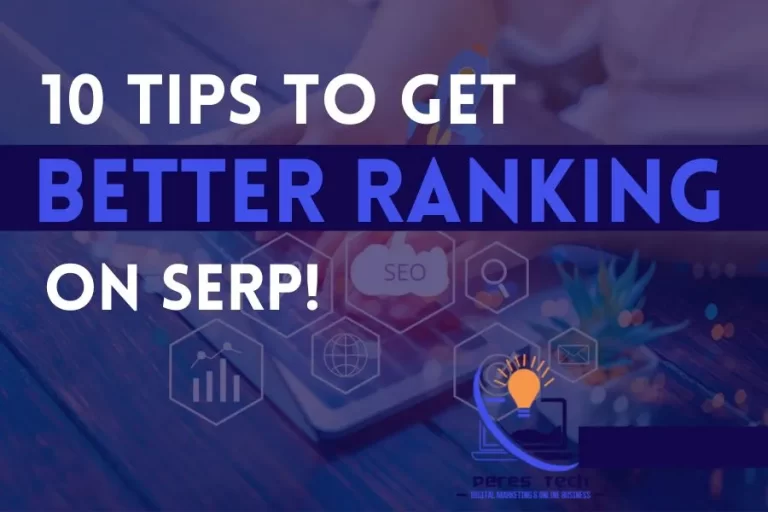
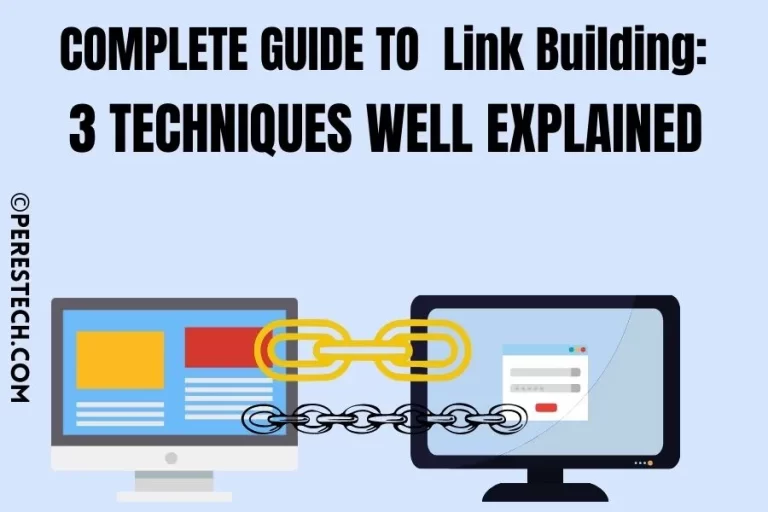
3 Comments